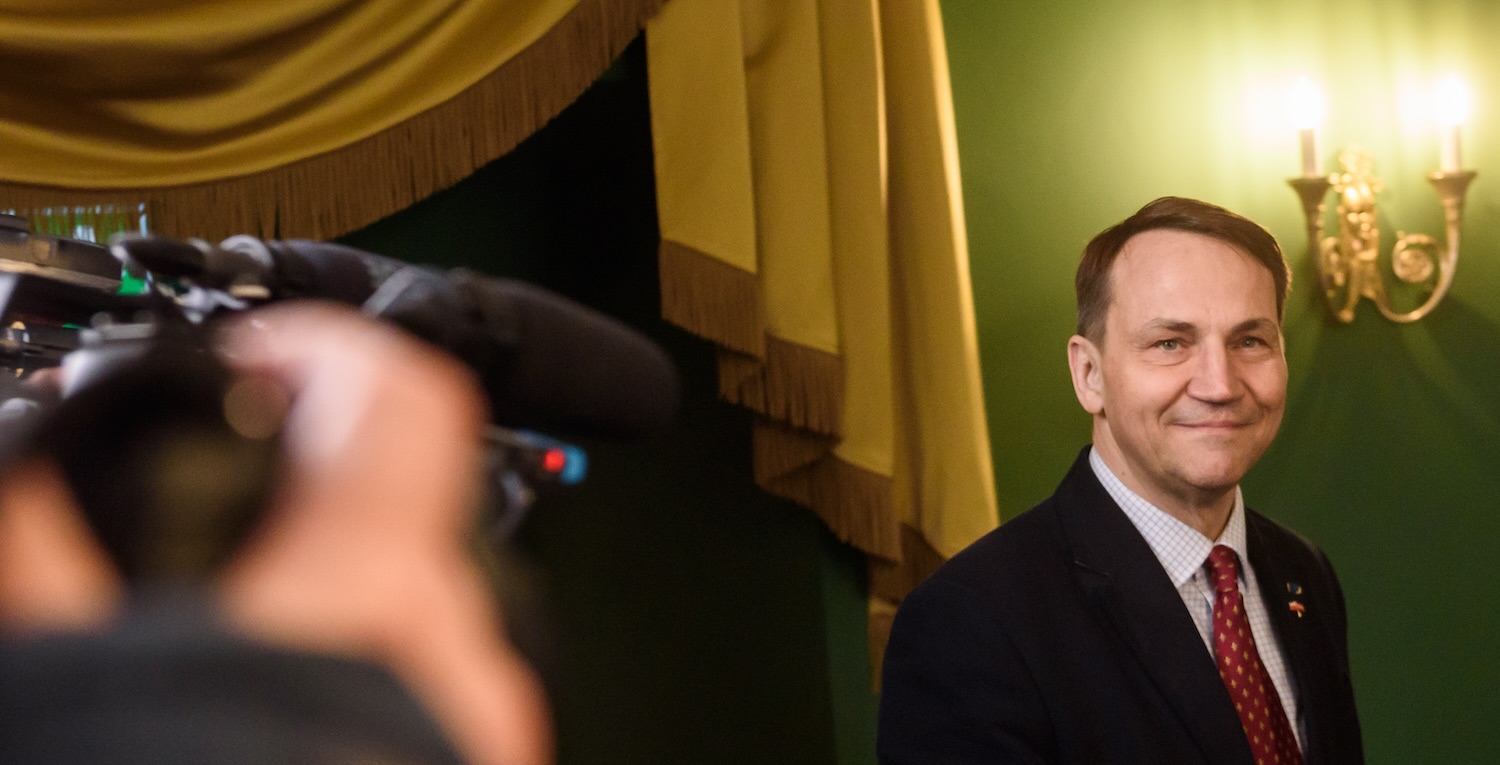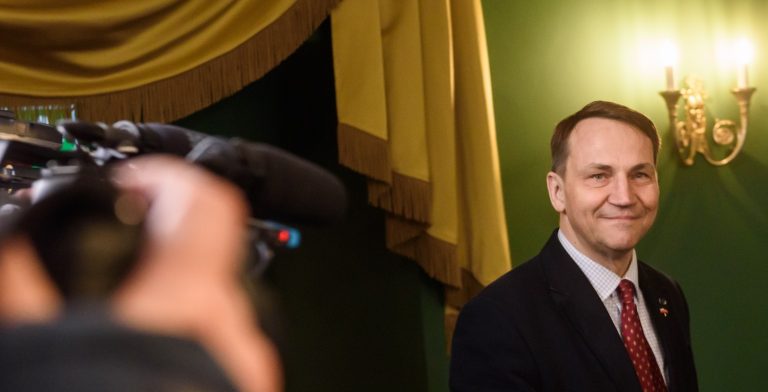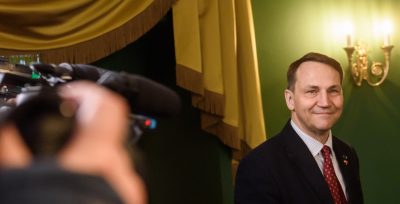This story is based on VSquare’s Goulash newsletter – read the full issue here with fresh scoops and a round-up of our latest investigations from Central Europe.
The European Parliament election is drawing near and there’s growing speculation in all Visegrád countries about the identity of their next EU commissioners. Here’s the current state of play: In the Czech Republic, according to a coalition agreement, the Pirates/STAN sub-coalition has the right to nominate someone. However, the relationship between the Pirates and STAN (the Mayors’ and Independents’ Party, a liberal party) has soured, and many in Prime Minister Petr Fiala’s conservative ODS party would also like to flex their muscles by putting forward their own candidate.
Currently, STAN’s Danuše Nerudová looks like the frontrunner, and Deputy Minister of Finance Marek Mora is among the names some in ODS are floating. “If there is a fight and the coalition can’t agree, they could settle with a compromise candidate such as Edita Hrdá, the Czech permanent EU representative,” a Central European foreign policy expert told me.
Nerudová, an economist, had been the rector of the Mendel University in Brno, then became a presidential candidate for the 2023 Czech presidential election, where she finished third in the first round. Currently, she is STAN’s lead candidate for the European Parliament election, and has a good chance of winning a seat (STAN is polling at 7 percent).
In neighboring Slovakia, the frontrunner, an obvious pick for Prime Minister Robert Fico, is perennial EU Commissioner Maroš Šefčovič, nicknamed Mr. Fix it because he tends to be handed tough jobs nobody else wants to do. Šefčovič has been a member of the European Commission since 2009, currently serving as Executive Vice-President for the European Green Deal. However, it’s unclear if Šefčovič will be able to secure a decent portfolio, or if he will want to associate himself with Fico’s increasingly pro-Russian government at all. Although Šefčovič was running as the candidate of Fico’s SMER party for the 2019 Slovak presidential election (and got defeated by Zuzana Čaputová), his views are now very far from the old-new Slovak prime minister’s.
An alternative candidate could be a former Fico foreign minister, Miroslav Lajčák, the current EU Special Representative for the Belgrade-Pristina Dialogue and other Western Balkan regional issues. According to Swiss press reports, Lajčák already secured himself an EU ambassadorship to Switzerland, but my well-connected Central European foreign policy expert source tells me that Lajčák is actually lobbying for the EU commissioner job.
In Hungary, my Orbán government-connected sources still mention MEP Enikő Győri as a likely pick (as I reported back in February), while current Minister of EU Affairs János Bóka – who is in charge of EU negotiations and would be the most obvious pick – is also in the mix. Hungary will take over the rotating EU presidency for the second half of 2024 and Bóka is tasked with handling all related issues, which could be either an obstacle for his candidacy or an opportunity to elevate his profile. Still, I hear rumors that Bóka is considered a “temporary” figure in the Orbán government, whatever that means.
Enikő Győri has been one of Viktor Orbán’s most trusted EU experts as well as an ambassador to Italy in the 2000s and to Spain in the 2010s during various Orbán governments. She’s been an MEP since 2019. On the other hand, János Bóka started his career working for the left-liberal Hungarian government – Orbán’s rivals – in the 2000s then worked as a staffer for a liberal Hungarian MEP in Brussels. Then he switched sides and became a high-ranking bureaucrat on EU affairs for the Orbán government, receiving a cabinet position as Minister for European Union Affairs in 2023. (Viktor Orbán also likes to dream big, and his top priority would be to secure the EU Commission’s competition portfolio for Hungary – which sounds quite unrealistic, as we previously wrote.)
Meanwhile, according to multiple Central European experts and diplomats with whom I’ve spoken, Poland’s rumored frontrunner for an EU top job is still Foreign Minister Radek Sikorski — but it’s unclear for what exact job he’s being considered. Were Ursula von der Leyen to continue as the European People’s Party (EPP) nominee for President of the EU Commission, the High Representative for Foreign Affairs and Security Policy position could be filled by the liberal Renew Europe/ALDE group’s candidate – likely meaning Estonian Prime Minister Kaja Kallas.
This would leave the EPP-affiliated Sikorski, if he’s interested in such a gig, with the EU’s defense commissioner portfolio, which would be created for the very first time. Sikorski held top positions under Donald Tusk’s governments, serving as Minister of Defense (2005–2007) and Minister of Foreign Affairs (2007–2014), then Marshal of the Sejm (2014–2015). He was an MEP between 2019 and 2023 when he retained his job as Tusk’s foreign minister. Alternatively, as we previously reported, Prime Minister Donald Tusk is also considering health expert MEP Bartosz Arłukowicz as a potential pick for EU commissioner
Cover illustration: Radoslaw Sikorski in Riga, Latvia, 27.03.2024. Photo: Gints Ivuskans / Shutterstock
Subscribe to “Goulash”, our newsletter with original scoops and the best investigative journalism from Central Europe, written by Szabolcs Panyi. Get it in your inbox every second Thursday!
VSquare’s Budapest-based lead investigative editor in charge of Central European investigations, Szabolcs Panyi is also a Hungarian investigative journalist at Direkt36. He covers national security, foreign policy, and Russian and Chinese influence. He was a European Press Prize finalist in 2018 and 2021.







